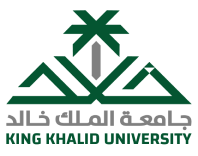The Mechanical Engineering Department in the College of Engineering offers a single major track program, the 'Bachelor of Science in Mechanical Engineering.' The program (Curriculum Version 12 & 13) spans five years, divided into ten semesters. The first two semesters constitute a common first-year program before delving into core academic subjects within the department. Although there are no alternative tracks offered by the department, there are two main fields in the program where the student can specialize and meet the career opportunities in the field of mechanical engineering. The first one is the area of production/design engineering which includes materials science, design, manufacturing, etc. The second one is the area of power/energy engineering such as thermodynamics, heat transfer, fluid mechanics etc. The program adheres to the standards set by the National Centre for Academic Assessment and Evaluation (NCAAA) and the (Accreditation Board for Engineering and Technology) ABET, ensuring continuous improvement. It is accredited by both NCAAA and ABET until 2026.
Vision
Achieving academic and technological leadership in the field of Mechanical Engineering, contributing through academics and applied research, and participating in the development of society.
Mission
To prepare qualified mechanical engineers who are able to develop, innovate and compete in their professions, besides involving in the scientific research and the community services.
Program Educational Objectives
-
Be creative, distinctive, and competent professionals capable of managing industrial establishments.
-
Enhance personal skills and pursue professional development through continuous learning.
-
Apply academic knowledge and conduct research in the field of Mechanical Engineering.
-
Actively contribute to the sustainable development of the community.
The University Council determines the number of students to be admitted for an academic year based on the recommendations presented by the College Councils and the respective departments at the college. The general evaluation procedures for new freshman and internal transfer students are described below.
Mechanical Engineering Program Study Plan for the Academic year 1446 and after
Mechanical Engineering Program Study Plan edition 12
Mechanical Engineering Program Study Plan for the Academic year 1439-1440 and after
Mechanical Engineering Program Plan & Course Description
- Student Outcomes
- Graduate Attributes
- Program Learning Outcomes
 COLLEGE OF ENGINEERING
COLLEGE OF ENGINEERING